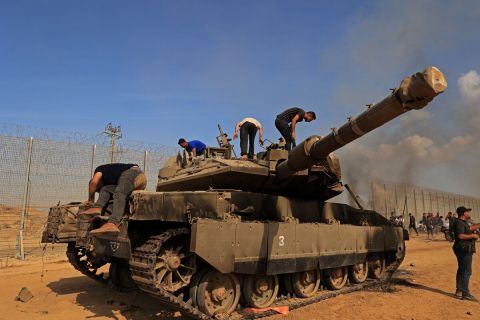ALBAWABA – Oil prices rose marginally on Wednesday before easing a bit later in the day as signs began to surface of the so-far successful containment of the implications of Hamas’ Al-Aqsa Flood operation on the entire Middle East region, news agencies reported.
Brent crude rose $0.25 to $87.90 a barrel by 0550 GMT, according to Reuters, and West Texas Intermediate (WTI) crude rose $0.24 to $86.21 a barrel.
Oil prices surged more than $3.50 on Monday as clashes raised fears of regional escalation with fallouts that could spread beyond Gaza, Reuters reported, but settled lower in Tuesday's later session.
By Wednesday, oil prices held most of Monday’s surge, according to Bloomberg. Even as the fallout from the ongoing Israeli-Palestinian onslaught seems to be contained, with Saudi Arabia pledging to help ensure market stability, oil prices retained most of their gains since Saturday.

The Al-Aqsa Flood operation threatens to disrupt the entire region and its oil supply - AFP
Israel produces very little crude oil, but markets are worried the conflict could escalate and disrupt Middle East oil supply, worsening an already expected deficit for the rest of the year.
"There is still a risk that this escalates, particularly if there is any Iranian involvement. Under this scenario, stronger enforcement of US sanctions on Iranian oil would tighten up the oil market through 2024," said Warren Patterson and Ewa Manthey, analysts from ING bank, in a note to clients, as reported by Reuters.
US officials have pointed fingers at Iran, alleging the Islamic Republic was complicit in the Hamas attack, but credible evidence has yet to emerge.
To date, political risk has kept crude prices from falling further, with the market already tight on Saudi-Russian supply cuts until the end of the year.
Keeping markets on edge, powerful Iraqi and Yemeni armed groups aligned with Iran have threatened to target US interests with missiles and drones if Washington intervenes to support the Israeli occupation.









